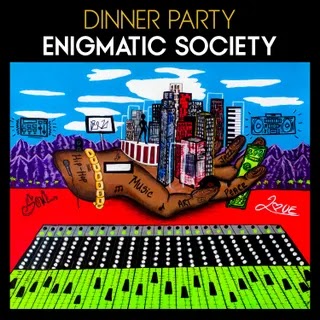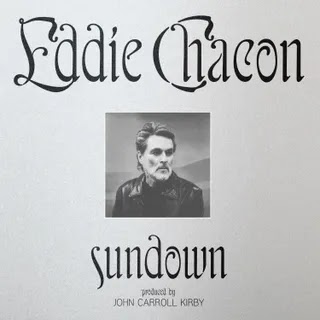The Parisian duo’s debut full-length harnesses controlled chaos, offering an engrossing introduction to their prismatic synth pop.
The Parisian duo UTO’s electronic concoctions leave sharp, lingering afterimages in the mind. The couple known as Neysa Mae Barnett and Emile Larroche began making music together in 2016; Barnett wrote and sang and Larroche handled production on their playful debut EP, released in 2017. While Broadcast’s featherlight psych-pop melodies and Portishead’s flinty trip-hop are obvious influences, UTO deftly make the sound their own: Barnett will occasionally unleash a surprising, guttural howl, or Larroche will trigger a sudden shift in tempo that hits like a roundhouse kick. On Touch the Lock, the group’s debut album, the pair cohere these styles through murky electronic music and sprightly electro-pop, backed by more mature songwriting and a clear-cut sense of individuality.
The bouncy highlight “À La Nage” is the most pop-minded song here, but UTO add a twist by looping wordplay lifted from novelist Georges Perec over a chorus of chirped backing vocals and jubilant keys. “Take It All” marches in the opposite direction, drawing together watery chimes and a queasy drumbeat; the vocals echo Kim Gordon’s whispery, tantalizing hooks, as Barnett intones about “giving you my best heartbeats” with a pitch-shifted inflection. Many of Touch the Lock’s lyrics drift toward off-kilter, oblique poetry as Barnett switches between French and English. On the airy highlight “Souvent Parfois” (“Often Sometimes”), she uses ecological imagery—the stars, the woods—to ground herself in the face a bout of mental uncertainty, securing the anguish with a solid center of gravity.
UTO’s propulsive tracks are more restless, built around textured polyrhythms and noisy production. “Row Paddle” delivers a driving, delirious drumbeat and synth combo that sounds directly inspired by Yeezus’ messy, anarchic spirit. Later, on the standout “This New Phase,” clattering percussion swarms over Barnett’s muted, staccato delivery: “Your new tales, your absence, all the mess that leaves love,” she murmurs rapidly. “How I miss your old laugh/How I miss your presence.” Barnett wrote the song about watching her grandmother succumb to illness, and the repetitive verses crank up the tension before the production veers into a sudden choral section, dropping listeners directly into a swirling, stunning expression of grief.
Not every experiment on Touch the Lock lands with the same vigor. The album’s midtempo songs alternate between the dreamy and evaporative (“Délaisse”) or the overly dreary (“Elisa”). Yet when they excel, it’s hard to resist the duo’s obvious sense of controlled chaos. Though it feels rough around the edges at times, Touch the Lock is delightfully slippery in execution, rich with innovative, percussive quirks that expand UTO’s sound while amping up their sly personality, making for an engrossing introduction.
















0 comments:
Post a Comment